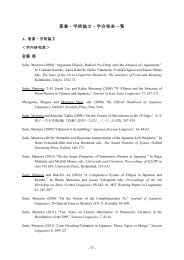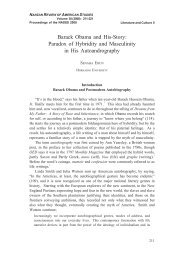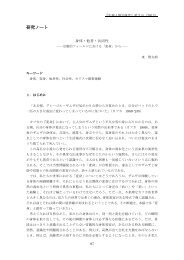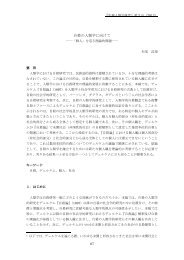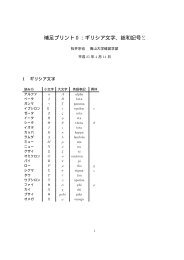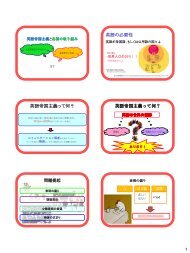INTRA- AND INTER-RELIGIOUS DIALOGUE IN ... - 南山大学
INTRA- AND INTER-RELIGIOUS DIALOGUE IN ... - 南山大学
INTRA- AND INTER-RELIGIOUS DIALOGUE IN ... - 南山大学
Create successful ePaper yourself
Turn your PDF publications into a flip-book with our unique Google optimized e-Paper software.
南 山 大 学 アジア・ 太 平 洋 研 究 センター 報<br />
第 7 号<br />
Islamic groups tried to change the state ideology into an Islamic ideology,<br />
while at some other times, secular oriented groups also tried to impose secular<br />
interpretations of Pancasila, and pushed for state policies which marginalise<br />
the Islamic groups. However, today Pancasila is still the common platform for<br />
the highly plural Indonesia.<br />
Of course, ideology is not the only important political issue in the country.<br />
There are other important problems like social and economic gaps between<br />
the rich and the poor, between the densely populated Java island and the outer<br />
islands, between the Javanese, the largest and dominant ethnic group, and the<br />
other ethnic groups, between indigenous and migrant ethnic groups, and last<br />
but not least, between a religious majority and religious minorities. These<br />
issues are sometimes more important than that of ideology, but they could be<br />
expressed in ideological terms. Rebellious movements in the late 1950s like<br />
Darul Islam and PRRI, could not simply be understood as ideological struggles.<br />
Social and economic gaps certainly contributed to the rise of the rebellions. On<br />
the other hand, without neglecting the politico-economic basis of the conflicts<br />
in Ambon and Poso during the last days of Soeharto and the early years of the<br />
Reformation Era (Klinken 2007 and Wilson 2010), the issue of religion and even<br />
nationalism (especially in Ambon where the Christians have been stigmatised<br />
as supporters of the rebellious RMS movement) still politically matters. The<br />
ideological issue has been even more openly expressed during the Reformation<br />
Era by Islamic political parties like PPP, PKS and PBB, as well as by Islamic<br />
organizations such as Hizbut Tahrir Indonesia, Majelis Mujahidin and Ansharut<br />
Tauhid. The issuing of the regional shari’a regulations in certain provinces of<br />
the country is also obviously ideological (Bush 2008; Mujiburrahman 2009).<br />
Thus, the problems faced by the Indonesian government and society to<br />
maintain national unity are quite complicated. Various attempts have been<br />
taken by the government and civil society to maintain social harmony accross<br />
the country, and one such endeavor is to encourage intra- and inter-religious<br />
dialogue. In this paper, I would like to discuss the development of intra- and<br />
―<br />
2<br />
―




